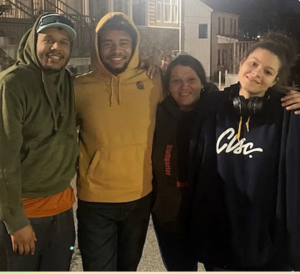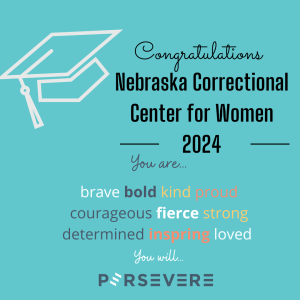Persevere Success Stories
What started with one man’s life changing experience, has grown to thousands of life changing experiences for hundreds of men and women in multiple states across the country. And we’re just getting started.

Tech for Good: Transforming Lives of Formerly Incarcerated Individuals with Talia Klutch
In today’s episode of the Elevate Your Career podcast, Nicole is joined by Talia Klutch, Director of Strategic Partnerships at Persevere, a not-for-profit focused on resources and opportunities for people looking to attain technology careers post-involvement with the justice system.

From Prison to Princeton
A mom of three who spent more than three years in prison is now spending her summer completing an internship at an Ivy League school.

Delinquents to Developers: Davidson County Detention Center Rolls out Coding Course to Reduce Recidivism
For many troubled teens, a sentence to juvie feels like a sentence to fail. Statistically speaking — it is. 80-percent of juvenile offenders end up back behind bars within three years, less than 2-percent ever enroll in higher education. Prison is their most likely career path. Persevere doesn’t believe children should be chained to their past. The social justice organization has created a coding course, so incarcerated youth can engineer a future outside correctional facilities. It’s designed to turn delinquents into developers.

Navigating Life as a Returning Citizen: Eight Years On and Still Facing Injustices
Returning to society after incarceration is a journey filled with challenges and barriers, many of which persist long after release. As a returning citizen, I have experienced firsthand the ongoing injustices that can continue to impact one’s life for years. Here’s my story, and a glimpse into the systemic issues that many of us face.

Persevere Celebrates Inaugural Graduation Ceremony for Nebraska Cohort
Persevere’s Nebraska cohort represents individuals who have demonstrated resilience, determination, and a commitment to positive change. Through the Persevere program, participants have received comprehensive support, including technology education, job training, mentorship, and access to resources aimed at facilitating successful reentry into society.

Volunteer Spotlight: Meet David Aniebo
What’s truly inspiring about these stories is the resilience and determination demonstrated by individuals who have been given a second chance through education and employment opportunities. It highlights the transformative power of support and opportunity in enabling individuals to turn their lives around and contribute positively to society.
CATEGORIES
Get Involved
We believe, and are committed to, communities and various stakeholders working together to form coalitions and create partnerships to bring education, housing, jobs, and mental health and substance abuse services to their respective areas. Too many people are affected by the criminal justice system, recidivism, and lack of access to critical resources and services. Too many of our minority populations have been drastically and disproportionately impacted.
